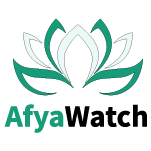If there is a disease that should be in the past tense it should be Cholera. This disease, that is spread through contaminated water, kills about 100,000 people every year.
Kenya has had its fair share of cholera outbreaks that have left scores dead and others walking a tight rope fighting for their lives.
While there is a close link between Cholera and poverty, Kenya has witnessed an outbreak among participants attending a conference in Nairobi on the 22/June/2017.
Another outbreak occurred at the KICC at a China Trade Fair where cabinet ministers were also affected.
Currently, Yemen is fighting its worst Cholera outbreak in history with about 2,000 deaths so far. More than 770,000 are infected most of them are children.
Yet for all its worth, Cholera is easily preventable.
WHO together with health officials from around the world have launched an ambitious plan to slash cholera deaths by 90 percent by 2030.
There are 40 countries across the globe that are affected by Cholera which causes acute watery diarrhea and vomiting. If untreated it can lead to extreme dehydration and cause death within hours.
According to WHO, new global plan focuses on tackling cholera hotspots, where outbreaks occur at the same time each year, by improving water and sanitation services, and through use of oral vaccines.
The Global Roadmap, WHO says, is aimed at aligning resources, sharing best practice and strengthening partnerships between affected countries, donors and international agencies.
There will be a more coordinated approach to cholera control with country-level planning for early detection and response to outbreaks according to WHO.
If implemented, up to 20 affected countries could eliminate cholera by 2030.
“The disease takes its greatest toll on the poor and the vulnerable – this is quite unacceptable. This roadmap is the best way we have to bring this to an end,” said Dr Tedros Adhanom Ghebreyesus, Director-General of WHO.
“Every death from cholera is preventable with the tools available today, including use of the Oral Cholera Vaccine and improved access to basic safe water, sanitation and hygiene as set out in the Roadmap,” Dr Tedros Adhanom Gebreyesus.
“This is a disease of inequity that affects the poorest and most vulnerable. It is unacceptable that nearly two decades into the 21st century, cholera continues to destroy livelihoods and cripple economies. We must act together. And we must act now.”
WATER and SANITATION
A sustainable way of curbing Cholera is by providing water sanitation and hygiene (WASH). It appears basic at a glance. But the deadly toll of the disease testifies to a complex problem whose solution lies with authorities acting more on the promises they make to their citizens than the rhetoric they are quick to sign.
There are over 2 billion people in the world today without access to clean water. That only means that they are also susceptible to Cholera.
Cholera stalks the poor preying on their vulnerability. Hence, conflict areas, are highly burdened. The lack of infrastructure, poor health systems and malnutrition add to an already bad situation.
There are two WHO-approved oral cholera vaccines available and individuals can be fully vaccinated for about Sh600 per person which is the equivalent of US$6 protecting them from the disease for up to three years.
The launch of the Global Roadmap provides an effective mechanism to synchronise the efforts of countries, donors, and technical partners.
If it works as envisioned, then yes Cholera could be a disease we study in history.








